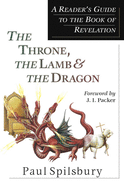
The book of Revelation has long intrigued, puzzled and even frightened its readers. Surely it is the most misunderstood book in the Bible. And some faulty interpretations of Revelation are so entrenched in the consciousness of Christians that they are regarded as gospel truth and provide riveting plot lines for end-time fiction. But behind the ancient multimedia show that is Revelation lies a message both simple and profound. It is told in a language and grammar of faith that was clearly understood by its first Christian audience. Much as a music video would scarcely have been understood by first-century citizens, though it is immediately understood by youthful audiences today, so we are puzzled by and misread Revelation. Paul Spilsbury has studied Revelation in the company of its best interpreters, those who have taken the time to enter the minds of the first-century Christians for whom it was originally written. And what has he found? Within the central images of a throne, a lamb and a dragon lies the answer--
the gospel clearly proclaimed
the glory of God awesomely illumined
the work of Christ memorably embodied
the nature of evil hauntingly disclosed
Here is a guide that will help us hear Revelation speak, once again inspiring grateful worship and calling us to costly discipleship.
the gospel clearly proclaimed
the glory of God awesomely illumined
the work of Christ memorably embodied
the nature of evil hauntingly disclosed
Here is a guide that will help us hear Revelation speak, once again inspiring grateful worship and calling us to costly discipleship.


